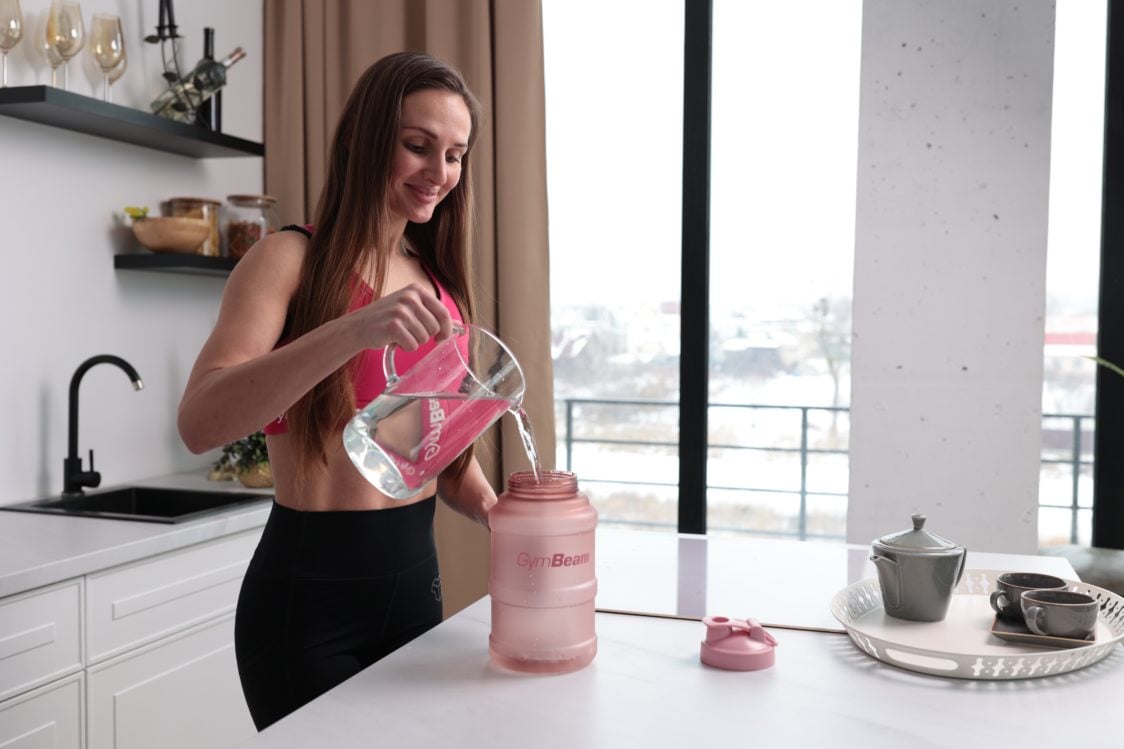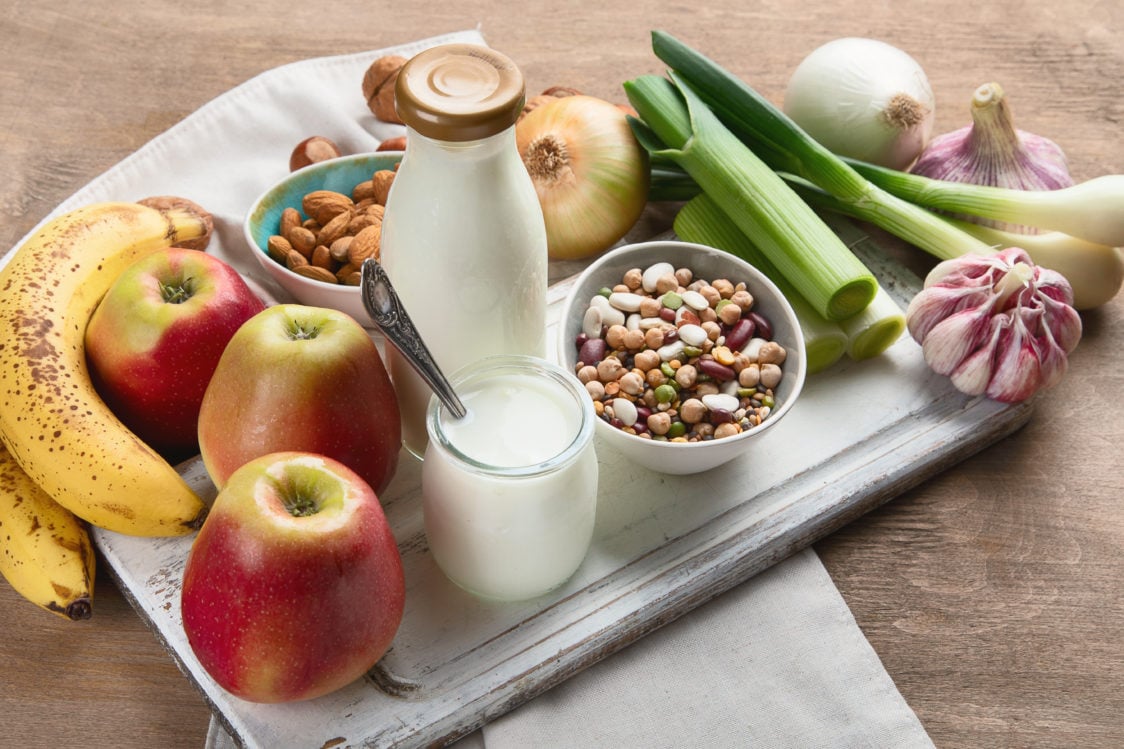Table of Contents
Each person has probably gone through a phase when they wanted to take a step in the right direction towards a better self. Such a person typically kicks off the lifestyle change at the beginning of the year, in the spring or before summer, just when swimsuit season is approaching relentlessly. At the same time, various promotions for juice or herbal detox cures appear, which seem to give the impression of a unique recipe for weight loss, robust health and perhaps even immortality. Such offers are hard to resist. In the end, however, after cleansing the body, one is left with an empty wallet and a hungry body.
Fortunately, none of us really need these diets, treatments and detoxifying cures. Our body can take care of the elimination of harmful substances by itself, with the help of organs that ensure natural detoxification. The great news is that with a few simple lifestyle adjustments, you can effectively support the body’s natural detoxification process. If you can apply them to your daily life, you will do far more for your health than fasting or a detox cocktail of vegetables and herbs picked under the full moon.
What is detoxification?
First of all, it is necessary to distinguish what is and is not a detox. It is not a special diet, a juice cleanse or a clean eating week when you only eat fruit and vegetables. It is a way of ridding your body of potentially dangerous substances 24 hours a day. Some of these harmful substances are produced directly in the body during metabolic processes, while others enter the body from the external environment through food, drink or breathing. After our body assesses them as foreign or toxic, the body’s detoxification system gets the word out and does its best to eliminate them from the body.

What organs are involved in the body’s natural detoxification?
Several organs are involved in the detoxification process [1-2]:
- liver
- kidneys
- digestive tract
- lymphatic system
- respiratory system
- skin
Function of individual organs in the detoxification of the body
Our body’s detoxification system is complexly interconnected and the organs involved in these processes work closely together.
1. Liver
The liver is the most important organ in terms of detoxification. It can detect toxic substances and break them down with enzymes so that they become water-soluble and can then be excreted through the urinary tract. The liver can also take care of binding these harmful substances into amino acids, which are then taken out of the body in the aforementioned way. The body uses the liver to get rid of, for example, heavy metals, bacteria, viruses and other pathogens. The liver is therefore the most important “detoxifier” of the body. [2]
This organ is also important for the breakdown of alcohol (ethanol). If you are interested in how this process works and what alcohol can do to your body, read our article Hangovers: Why Do They Occur and How to Get Rid of Them Quickly?
2. Kidneys
Our kidneys filter blood and rid it of by-products that are produced, for example, during the metabolism of drugs and other unwanted substances. These are then excreted out of the body through the urinary tract. [3]
3. Digestive (gastrointestinal) tract
The digestive tract carries away a large part of the waste substances that are produced as a by-product of metabolism. This also includes toxins that can enter our body from the environment through fluids or food. [3]
4. Lymphatic system
Lymphatic vessels with lymph are present throughout the whole body and take care of the removal of metabolic wastes, bacteria and other harmful substances. These then reach the lymph nodes, where they are filtered into the blood. The relevant organs, such as the kidneys or the liver, then catch them and they are easily eliminated from the body. [4-5]
5. Respiratory system
The respiratory system acts as a kind of filter for dangerous substances that a person may inhale. The nasal cavities and lungs have a mucoid layer on the surface that serves as a protective barrier. Its purpose is to prevent the passage of dust and other foreign substances into the lungs and bloodstream. Exhalation, in turn, removes unwanted carbon dioxide from the body. [2-3]
6. Skin
The skin forms a barrier that protects from the entry of viruses, bacteria and chemicals into the body. When you sweat, harmful substances that are fat soluble also get excreted out of the body through the skin. Water-soluble toxins cannot get through the skin. [2-3]

How to promote natural detoxification?
You should not expect miracles from spring detoxes of the body or various forms of fasting. It is much better to create healthier habits. This way, you will support all of the organs mentioned above, which are involved in the removal of harmful substances. What are the specific steps involved? Well, the time-tested changes in eating or exercise habits and other lifestyle adjustments. The goal is not to have a specific diet or a fancy workout plan from one day to the next. It will be enough if you gradually start working on improving and creating new habits. In this way, you will gradually adopt a healthy lifestyle that will maximally support the body’s ability to get rid of harmful substances, i.e. detoxify.
1. Eat less processed food
When shopping for food, it is important to check the ingredients. They may be monitored for health safety by the relevant authorities, but if some product contains so many ingredients that reading them is enough to put a baby to sleep, they are probably not the ideal choice. Most often these are highly processed foods. These typically contain high levels of refined carbohydrates, simple sugars, saturated fatty acids (fats), salt, preservatives, colourings, flavourings and other substances that give them an irresistible taste. All of which our bodies have to deal with, which puts more strain on natural detoxification system. [7-8]
Highly processed foods include most sweets, ready-made meals, instant foods, sausages, fried foods, fast food or white bread. Such food may tantalise the taste buds, but the liver will not be so pleased. For this reason, it is important to limit these foods in the diet as much as possible. [7-8]
How to reduce highly processed foods?
- The diet should be dominated by staple foods such as cereals, potatoes, fresh meat, unsweetened dairy products, eggs, legumes, nuts and seeds, fresh fruit and vegetables. These foods should make up at least 80% of your diet.
- When buying food, check the ingredients for simple sugars, saturated fats, salt and additives. It is better to find an option that contains as few of these as possible.
- Replace processed meat products such as sausages, salami, canned meats and other cured meats with fresh meat.
- Replace store-bought snacks and sweets with fresh fruit, nuts or unsweetened dairy products.
- Plan ahead what you will eat and prepare your meals primarily at home.
- You can prepare your favourite fast food menu at home from basic ingredients. This way you will have more control over the final composition of the meal. A home-made meat or veggie burger with sweet potato fries will probably taste even better.
- Organic or BIO food from organic farming is also worth trying. Such products typically contain fewer potentially harmful substances (residues of agrochemicals, etc.) than foods without this label.
In case you want to brush up on the rules of healthy eating, you can find them in our article What Is a Healthy Diet and How to Learn to Eat Healthily?
If you’re wondering which foods to look out for at the shops in terms of their ingredients, read our article 10 Foods that Only Seems to Be Healthy.

2. Limit your intake of simple sugars
In today’s world, sugar is naturally found in sweets, baked goods, salad dressings, dairy products and other highly processed foods. The problem is that in excessive amounts, it can negatively affect the function of the main detoxification organs – the liver and kidneys.
In the body, sugar is converted into glucose, which is the source of energy for movement and other bodily functions. The unused glucose then begins to store as fat in various parts of the body, including the liver. This can ultimately lead to steatosis (fatty liver disease), which adversely affects liver function. High sugar intake has also been linked to a negative effect on the kidneys, which help with the elimination of waste products from the body. [7-9]
How to limit your sugar intake?
- Replace sweets with more suitable alternatives that are lower in sugar, such as fresh or lyophilized fruit, protein bars, dark chocolate or nuts.
- When baking, at least partially replace conventional sugar with erythritol or other low-calorie sweeteners.
- Ideally, sweetened drinks should be replaced with tap water, which can be flavoured with fresh mint, lemon juice, a sugar-free instant drink or flavoured BCAA.
If you are interested in more tips on how to replace sugar in cooking and baking, you can find them in our article How to Make Christmas Baking Healthier?
You might be interested in these products:
3. Drink plenty of fluids
Water makes up approximately 60% of our body and is thus a natural part of the blood and lymph. It is involved in the transport of waste products and other harmful substances, which it then helps to eliminate from the body. If you don’t drink enough water, you are at risk of dehydration, which can manifest itself, among other things, in impaired filtration capacity of the kidneys or digestive problems (constipation). This can result in the accumulation of harmful substances in the body. For this reason, it is important to think about sufficient fluid intake every day. [10-11]
How to stay hydrated?
- You should drink at least 30 – 45ml of water/kg body weight daily. The optimal amount is influenced not only by body weight, but also by physical activity, surrounding temperature or perspiration levels.
- The best drink is tap water. But you can also diversify your fluids intake with tea, RTD drinks or flavoured BCAAs.
- It’s always nice to have a bottle or glass of drink in plain sight, as it makes you drink more.
- Try to keep an eye on the colour of your urine. A light shade is considered a signal of sufficient hydration. Dark yellow is already an indication of dehydration.
We’ll share more tips on how to improve your water intake in our article How Insufficient Water Intake Affect Your Health?

4. Eat plenty of fibre
Sufficient fibre intake is important for healthy digestion in many ways. The digestive system plays an essential role in the elimination of waste substances from the body, which is done through peristaltic bowel movements. This is supported by insoluble fibre, which also binds metabolic by-products and other unwanted substances from food as it passes through the digestive tract. As a result, it is often compared to a ‘brush’ that cleans the intestines. Soluble fibre, on the other hand, slows down the passage of the digestive material through the intestine and thus contributes to a more thorough absorption of unwanted substances. The recommended daily intake of dietary fibre is in the range of 25 – 30g. [12-14]
How to increase your fibre intake?
- Add foods to your diet that are naturally high in fibre. These include whole grain cereals and their products (bread, pasta), legumes, fresh and dried fruit, vegetables, nuts and seeds.
- Soluble fibre intake can also be increased by adding psyllium or inulin to yoghurt, smoothies or muesli.
- Daily Fiber, a complex dietary supplement that contains both soluble and insoluble fibre, can also help with achieving a sufficient intake of this substance.
5. Eat more probiotic and prebiotic foods
The digestive system is also nourished by a diet rich in probiotic bacteria and prebiotics. Why is this important? Because these bacteria serve as food for friendly microorganisms living in the digestive tract. They ensure a healthy gut environment (microbiome). This is important for digestion and nutrient absorption. In addition, the microbiome also contributes to a barrier that limits the entry of foreign substances into the bloodstream. This makes it protective and an integral part of the body’s natural detoxification system. [12,15]
How to increase your intake of prebiotics and probiotics?
- Prebiotics are a type of fibre that serves as food for health -promoting bacteria (gut microbiome). They are mainly found in foods high in soluble fibre, such as legumes (lentils, beans, chickpeas), sweet potatoes, fruits (bananas, apples, berries), vegetables (garlic, onions) and whole grain cereals (oats, quinoa).
- Probiotics are live and health-promoting bacteria, such as the genera Lactobacillus and Bifidobacterium, found in fermented products such as yogurt, kefir milk, sauerkraut, kimchi, tempeh, kombucha, miso and natto.
- You can also support your daily probiotic intake with high quality supplements, that contain ten probiotic strains with ten billion CFU (colony forming units).
To learn more about probiotics, read our article Probiotics: the Importance of Beneficial Bacteria for Immunity and Overall Athlete Health.

6. Limit your alcohol intake and ideally say goodbye to it
Do you indulge in alcoholic beverages only occasionally, or is beer or wine a regular part of your fluids intake? Either way, it’s a good idea to limit alcohol or skip it altogether. It is a toxic substance, which the body then has to get rid of through difficult processes. This is the responsibility of the liver, which converts ethanol into inactive acetic acid. [16-17]
If you go from party to party or end each day with an alcoholic beverage and don’t let your liver have a break, it can result in impaired liver function. Not to mention hangovers and poorer athletic and mental performance. [16-17]
You can read about other health effects of alcohol in our article How Does Alcohol Affect Weight Loss, Regeneration and Muscle Growth?
7. Stop smoking
Even the healthiest diet in the world won’t save us if we breathe in harmful substances from cigarette smoke every day. Cigarettes contain more than 70 toxins that can do a lot of damage to the body. Not only does it overload the body’s detoxification system in this way, but it can also cause serious lung disease or cancer of this or any other organ. The best way to prevent this is to stop smoking altogether. [18]

8. Be active
Regular sport and exercise is another great way to support the body’s natural detoxification. In doing so, the function of the lungs is strengthened and the overall efficiency of this organ is increased. This makes it easier for the body to get rid of carbon dioxide and other harmful substances.
In addition, exercise improves blood circulation and increases lymph circulation, which contributes to the filtration of waste substances and toxins. Last but not least, according to scientific research, getting plenty of exercise is also essential for maintaining a healthy liver and kidneys. All of this is true if you also give the body enough space for regeneration. [19–22]
How to move more?
- The ideal is to aim for as much natural movement as possible during the day. Try to pick up more steps by walking to work, to the city or out for a coffee. It’s also a great idea to replace using the elevator with stairs.
- Find a sport that you enjoy and commit to it several times a week.
- You can try running, hiking, cycling, swimming, body weight workouts, or HIIT.
- A perfect idea is to find a friend or buddy to motivate each other during exercise.
If you are interested in other benefits of physical activity, read our article Why Should You Exercise? Stronger Immunity, Heart and 8 More Reasons.
9. Focus on quality sleep
Getting adequate and quality sleep is key to maintaining overall health. In addition to replenishing energy, it also helps to “naturally detoxify the brain”. This effect occurs especially during deep sleep (non-REM), when the removal of waste proteins that have accumulated in the brain during the day takes place. These substances can compromise brain cell function and pose a risk for neurological diseases such as Alzheimer’s. For this reason, it is important for this cleaning to occur at regular intervals, ideally every night. This will give you extra motivation to make your sleep a priority and dedicate at least seven hours to it each day. [23-25]
How to sleep better?
- If your daily activities allow it, go to bed around the same time.
- Create an evening routine to help create a relaxing atmosphere.
- Avoid caffeine in the afternoon.
- Before going to bed, it is ideal to avoid working on the computer or scrolling on social networks, do not drink alcohol or eat heavy meals.
If you want to learn more tips to help you sleep better, read our article How To Fall Asleep Quickly? Try Our Simple Tips for a Better Night’s Sleep.
10. Don’t forget about the lymphatic system
Unlike the cardiovascular system, the lymphatic system has no pump to drive it. For this reason, the lymphatic vessels are dependent on physical activity. Their activity and function can therefore be supported by exercise or massage. [4-5, 26]
How to support the optimal function of the lymphatic system?
- Daily exercise and regular physical activity contribute to a more efficient flow of lymph throughout the body. This results in better removal of waste products from the body.
- Other ways to get the lymphatic system working include visiting a sauna or alternating hot and cold water, self-massage with a massage gun or professional lymphatic drainage massage.
- Lymph is made up of more than 90% water, and for this reason you should not forget about a sufficient fluid intake. This helps to prevent the accumulation of lymph and the formation of swelling, which is most often found in the lower limbs.

11. Try dietary supplements to boost proper liver function
Dietary supplements are another way to fully support the detoxifying function of the liver. They can’t work miracles on their own, but if you work on the above-mentioned lifestyle changes, you can give the liver the care it deserves. These are biologically active substances that have scientifically proven positive effects. [27]
What dietary supplements can benefit the liver?
- Milk thistle contains silymarin, a biologically active substance popular for its beneficial effects on liver regeneration.
- Choline bitartrate is a source of choline, which is a bioactive substance that is capable of reducing the accumulation of fat in the liver. Thanks to this, it contributes to the maintenance of its normal function.
- In addition to the two above-mentioned substances, the complex supplement for liver support contains vitamins B1, B6, C and also extracts of herbs that have antioxidant effects. Thanks to these, it helps protect liver cells from the harmful effects of oxidative stress.
- N-acetyl L-cysteine is an amino acid key to the formation of the important antioxidant glutathione. It helps neutralise harmful free radicals and also contributes to the body’s natural detoxification. In the body, it can pick up mercury, for example, and help to eliminate it from the body.
- Chlorella, spirulina, green barley and other green superfoods are also used to support the body’s natural detoxification, as they contain many beneficial substances, especially the powerful antioxidant chlorophyll. Studies show that chlorella in particular is effective in removing heavy metals and other harmful compounds from the body. [28–30]
What should you remember?
After reading today’s article, you already know that you don’t have to fast for several days or follow a cleansing diet to promote detoxification. It is enough to make a few simple lifestyle changes. It is advisable to avoid highly processed foods and other high-sugar foods as part of your dietary modifications. Plus eat sufficient amounts of fibre and foods with probiotics and prebiotics.
Good quality sleep, regular exercise and other means of supporting the function of the lymphatic system are also key to the natural detoxification of the body. Limiting alcohol and other toxic substances is also an important step. Overall, you can also support your efforts with appropriate liver support supplements.
If you liked our article and learnt new information from it, please share it with your friends. They’ll also love to discover what is a natural detoxification process and what they can do to support it.
[1] Cline, J. C. Nutritional aspects of detoxification in clinical practice. – https://pubmed.ncbi.nlm.nih.gov/26026145/
[2] Nourished By Nutrition. How Your Body Detoxes Naturally. https://nourishedbynutrition.com/how-your-body-detoxes-naturally/
[3] ORGAN SYSTEMS: DETOXIfication. – https://vetmed.tamu.edu/peer/detoxification/
[4] Exercise, lifestyle and the lymphatic system. – https://www.cpandr.co.uk/2018/03/20/exercise-lifestyle-and-the-lymphatic-system/
[5] Cleveland Clinic. Lymphatic System: Parts & Common Problems. – https://my.clevelandclinic.org/health/articles/21199-lymphatic-system
[6] CNN. „Detox" from overly processed foods: How to cut back. – https://www.cnn.com/2017/10/27/health/processed-food-eat-less-drayer/index.html
[7] Lustig, R. H. Ultraprocessed Food: Addictive, Toxic, and Ready for Regulation. – https://doi.org/10.3390/nu12113401
[8] British Liver Trust. Sugar and the liver: What you need to know. – https://britishlivertrust.org.uk/sugar-and-the-liver-what-you-need-to-know/
[9] Karalius, V. P., & Shoham, D. A. Dietary sugar and artificial sweetener intake and chronic kidney disease: A review. – https://doi.org/10.1053/j.ackd.2012.12.005
[10] Popkin, B. M., D’Anci, K. E., & Rosenberg, I. H. Water, Hydration and Health. – https://doi.org/10.1111/j.1753-4887.2010.00304.x
[11] Nhs.Uk. Dehydration. – https://www.nhs.uk/conditions/dehydration/
[12] Ask The Scientists. Your Detox Organs Need Dietary Fiber. – https://askthescientists.com/qa/dietary-fiber-and-detox-organs/
[13] Eliminate toxins in the body with fiber– https://www.samoanews.com/eliminate-toxins-body-fiber
[14] Ucsfhealth.Org. Increasing Fiber Intake.– https://www.ucsfhealth.org/Education/Increasing Fiber Intake
[15] Yoo, J. Y., & Kim, S. S. Probiotics and Prebiotics: Present Status and Future Perspectives on Metabolic Disorders. – https://doi.org/10.3390/nu8030173
[16] The Alcohol Pharmacology Education Partnership. How is Alcohol Eliminated from the Body? – https://sites.duke.edu/apep/module-1-gender-matters/content/content-how-is-alcohol-eliminated-from-the-body/
[17] Cederbaum, A. I. ALCOHOL METABOLISM. – https://doi.org/10.1016/j.cld.2012.08.002
[18] American Cancer Society. Harmful Chemicals in Tobacco Products. – https://www.cancer.org/cancer/cancer-causes/tobacco-and-cancer/carcinogens-found-in-tobacco-products.html
[19] Shephard, R., & Johnson, N. Effects of physical activity upon the liver. – https://doi.org/10.1007/s00421-014-3031-6
[20] Zhang, L., Wang, Y., Xiong, L., Luo, Y., Huang, Z., & Yi, B. Exercise therapy improves eGFR, and reduces blood pressure and BMI in non-dialysis CKD patients: Evidence from a meta-analysis. – https://doi.org/10.1186/s12882-019-1586-5
[21] Sports Physio Massage Gold Coast. How can Massage & Exercise improve your Lymphatic System (Immune System) – https://www.mygcphysio.com.au/services/articles-useful-info/how-can-massage-exercise-improve-your-lymphatic-system-immune-system/
[22] The Role of Exercise in Detox: Discover the Truth About Sweating It Out. – https://askthescientists.com/exercise-detox/
[23] World Economic Forum. Want to have a healthy brain? Make sure you’re washing it every day. – https://www.weforum.org/agenda/2019/12/sleep-benefits-brain/
[24] Clinical Education. Sleep and Its Detoxing Effect on The Brain and Body– https://www.clinicaleducation.org/news/sleep-and-its-detoxing-effect-on-the-brain-and-body/
[25] NPR.Org. Brains Sweep Themselves Clean Of Toxins During Sleep. – https://www.npr.org/sections/health-shots/2013/10/18/236211811/brains-sweep-themselves-clean-of-toxins-during-sleep
[26] Macciochi, J. Love your lymph! - The Food Medic.– https://thefoodmedic.co.uk/2019/09/love-your-lymph/
[27] Frank, K., Patel, K., Lopez, G., & Willis, B. Liver Health and Detoxification Research Analysis. – https://examine.com/supplements/liver-health-and-detoxification/
[28] Sears, M. E. Chelation: Harnessing and Enhancing Heavy Metal Detoxification—A Review. – https://doi.org/10.1155/2013/219840
[29] Queiroz, M. L. S., Rodrigues, A. P. O., Bincoletto, C., Figueirêdo, C. A. V., & Malacrida, S. Protective effects of Chlorella vulgaris in lead-exposed mice infected with Listeria monocytogenes.– https://doi.org/10.1016/S1567-5769(03)00082-1
[30] Uchikawa, T., Kumamoto, Y., Maruyama, I., Kumamoto, S., Ando, Y., & Yasutake, A. Enhanced elimination of tissue methylmercury in Parachlorella beijerinckii-fed mice. – https://doi.org/10.2131/jts.36.121

